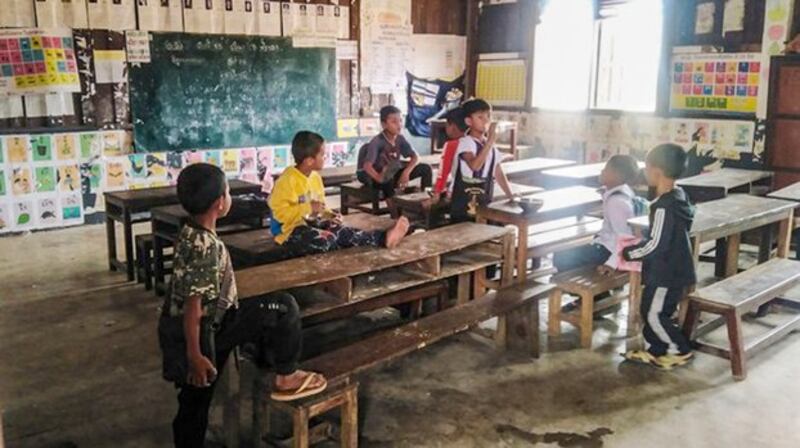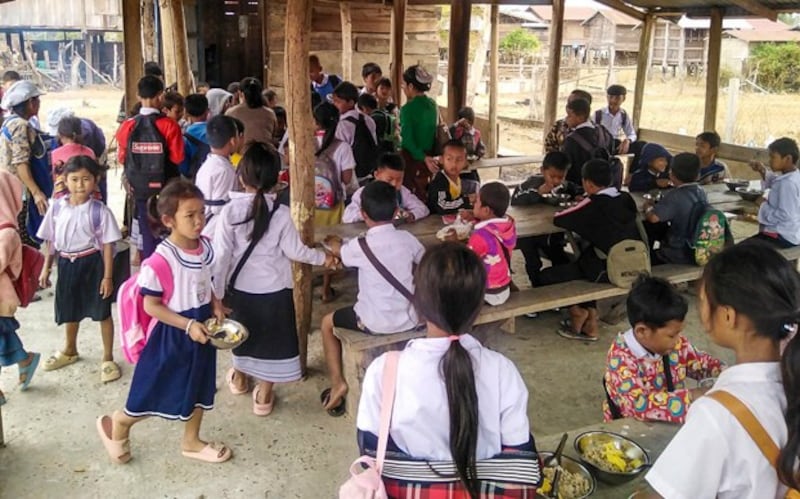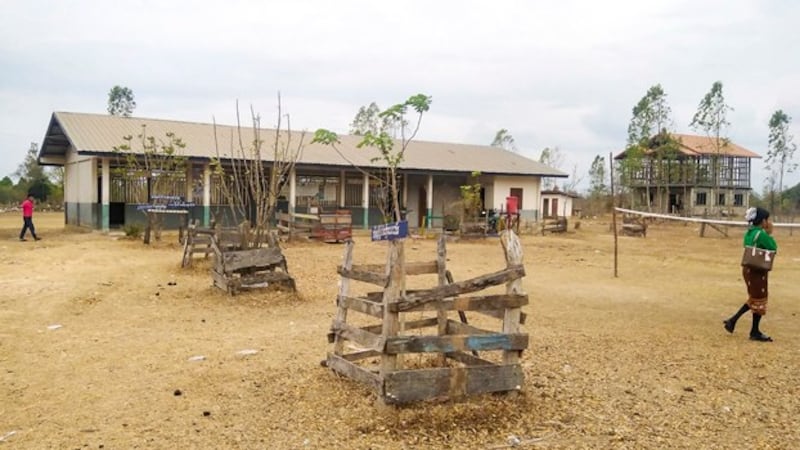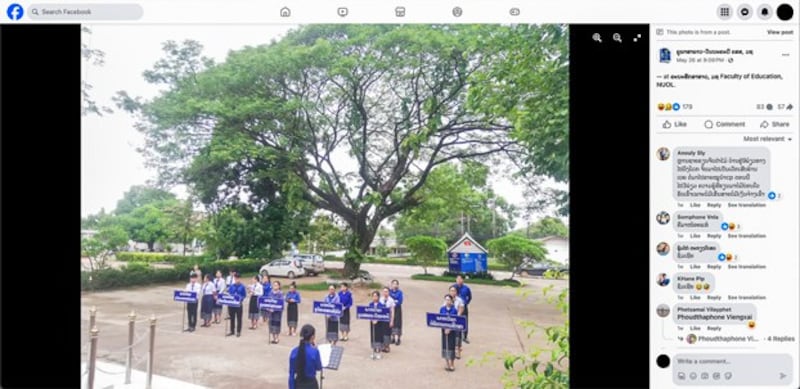Middle and high school students in Laos say they are dropping out of school because of the country’s dismal economy and lack of job opportunities, while fewer young people are enrolling in universities.
The number of graduates from these schools in the poor landlocked country has fallen for the last three years, as surging inflation — at 26% in May — has raised prices, including those of food and transportation, amid declining public spending on education. What’s more, there are not enough job opportunities for new grads.
That’s made it hard for families to pay for school tuition and other education-related expenses.
Parents of public school students in kindergarten to grade 12 pay no tuition, though they must pay maintenance fees for desks, chairs and photocopied material, as well as cover the cost of textbooks, transportation, meals and uniforms.
University students must pay for their tuition, on-campus accommodations, plus books and living expenses.

A recent high school graduate in Champassak province, in the south, said he decided not to go to college because he’s seen many graduates unable to find jobs in their fields of study.
“If I study, I’ll spend four years for nothing,” he said. “It’s better to start working now. The end result will be the same.”
Higher fuel prices and the continuing depreciation of the Lao currency, the kip, which raises the price of imported goods that Laotians rely on, are among the main factors driving inflation, the Lao Statistics Bureau reported at the end of May.
The number of students completing middle school has fallen to 68,800 this year from 76,300 in 2023 and from 83,000 in 2022, according to the Ministry of Education and Sports.
Likewise, the number of high school graduates has dropped to 46,700 this year compared to 50,000 in 2023 and 55,800 in 2022, the ministry said.
Student enrollment in the country’s universities has seen a similar drop.
Dropping out
“One of the main reasons is that going to school costs more money, and their families’ finances are not good right now,” said the principal of a secondary school in Bolikhamxay province who, like others in this report, asked not to be identified for fear of retribution for openly expressing his views.
Many students at his school dropped out this year to find work or to help their parents grow rice and vegetables, while others got married, he said.
“We at the school are trying to convince them to come back,” he said. “Only a few of them have returned.”

A high school student in Oudomxay province in northern Laos who quit earlier this year said she and others are doing so mainly for financial reasons.
“Some stopped going to schools because they were poor; others wanted to work to support themselves and families,” she said. “It’s better to get out there and make money.”
A teacher from a high school in Salavan province in southern Laos said she also tried convincing students who left early to return to take vocational courses, such as cooking, sewing, electrical, mechanics and agriculture classes, so they would have better job prospects.
Several university students and parents say economic and financial woes have led to low college enrollment levels.
Only 8,400 students applied last year to the country’s four major public universities for the 2023-4 academic year, though the minimum needed was 11,000, said Sourioudong Sundara, vice minister of education and sports, in August 2023.

The number of students at the National University of Laos, the country’s most prestigious university, fell to 6,000 students in 2023 from 9,000 in 2021 during the COVID-19 pandemic.
One student told RFA that his first-year class had fewer than 10 pupils, and the second-year class had fewer than 20.
Economic conditions are the main reason, he said.
“Many students worry about their job prospects,” the student said. “They’re not sure when they will graduate, or if they’ll get a job or not. Right now, they think it’s better to get out and get a job. Graduate or not, they may make exactly the same money.”
A university official said that the number of enrolled students is much smaller this year than the number of faculty members.
No jobs after graduation
The mother of one student said her family saved money for years to send her son to the National University of Laos, and that other families did the same, even going so far as selling their rice fields and cattle.

“In the end, their children graduate, [but] they have no jobs,” she said, adding that the country’s high inflation makes it impossible for graduates to eke out a living.
“It’s better to get out of school and out of the country and go to work in Thailand where they can get a job and make some real money,” she added.
A young Lao woman who works in Thailand said she did not attend college because she didn’t believe a degree would be beneficial.
“My family is experiencing financial difficulties due to economic slowdown, so when I finished high school, I decided to go work in Thailand right away.”
Translated by RFA Lao. Edited by Roseanne Gerin and Malcolm Foster.
